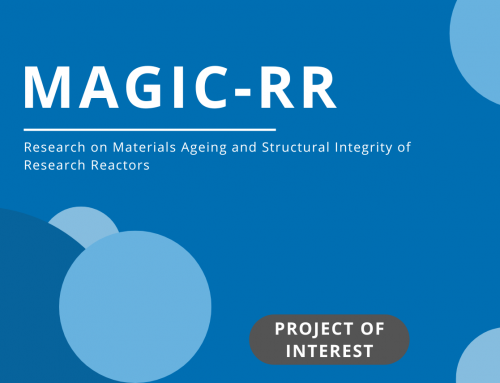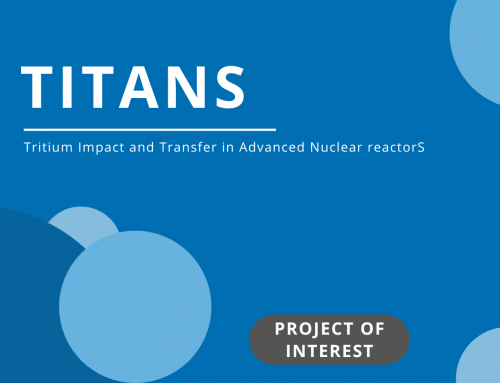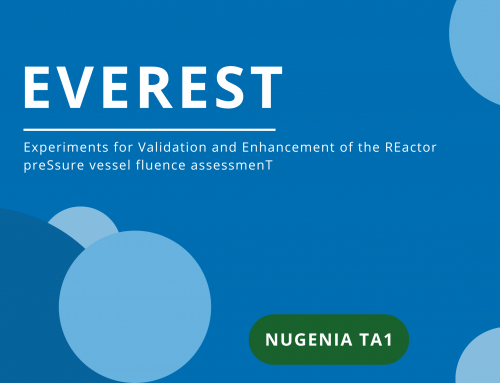
OBJECTIVES
The PUMMA project will define different options for Pu management in Generation-IV systems and evaluate the impact on the whole fuel cycle in addition to safety and performance aspects. Fast neutron reactors with the associated fuel cycle strategy have been chosen to cope with these options because they are flexible: they offer the possibility of isogeneration, burning or breeding of plutonium. The fuel cycle scenarios associated with the different strategies will be evaluated at different stages of the cycle in terms of impact on the facilities. These studies will be completed with dissolution tests as there is currently no dissolution data on fuels with very high plutonium contents. Studies to date have been limited to concentrations of less than 30%.
Today, knowledge on MOX fuel behavior in Generation-IV reactors comes mainly from feedback on SFRs that have operated in the past in Europe, with Pu contents varying between 15% to 30% and Linear Heat Rate often in the 300 to 450 W/cm range. This knowledge is insufficient to cover future needs, whether in terms of reactor concepts (GFR, LFR, FSMR…), Pu management option or operating regime. PUMMA will provide complementary results on fuel properties and characterisations of 45%Pu-fuels irradiated in HFR and Phénix under nominal conditions and overpower. The safety standards will then be extended to this fuel composition as well as the fuel performance code validation.
PUMMA will make the link between Europe and other international organisations: the fuel cycle studies at IAEA and OECD, the GEN-IV systems at ESNII and GIF, the fuel material studies at OECD.

EXPECTED IMPACTS
The impact at the scientific level will be:
- Enhancement of thermal and mechanical properties of the fuel with new measures
- Coupling of thermomechanical and thermochemical simulation for fuel behavior
- Contribution of atomistic and thermodynamic modelling in the evaluation of thermal properties.
- Better knowledge of the dissolution of Pu-rich MOX fuels (rate, kinetics, residues)
The impact at the technological level will be:
- Impact of fuel cycle options on reactor, cycle and waste performance.
- Impact of Pu management on the cycle facilities (manufacturing, reprocessing, intermediate storage) and transport
- Analysis and recommendations on MTR irradiation devices for qualification of fast fuels
- Evaluation of the performance of the industrial process for the dissolution of irradiated fuel.

HIGHLIGHTS
PUMMA will provide major progress; the following deliverables illustrate that for each field:
- D1.5 Synthesis of the impact of the Pu management in the fuel cycle
- D2.4.1 Methodology for safety analysis of High Pu fuels
- D3.5.1 New MOX fuel catalogue (20 – 45% Pu range)
- D4.2.1 Comparison of MTR and FR fuel irradiation experiments for assessment of the validity of MTR irradiations for FR fuel qualifications.
- D5.5 Impact of high Pu content MOx fuels on the first step of reprocessing (dissolution)
- D6.1.3 E&T materials: e-platform “Wiki-FUEL”, MOOC (for young generation of researcher: feedback from 30 years of results on fuel cycle closure and minimization of waste)

PARTNERS
BME-NTI / CEA / CIEMAT / EDF / ENEA / EPFL / FRAMATOME / Imperial College / JRC-Karlsruhe / JRC-Petten / KIT / NRG / KIT / MTAE / NNL / POLIMI / PSI / SCK-CEN / UJV / VTT/ VUJE / WOOD.

DURATION & BUDGET
October 2020 – October 2024 – 4 years
6,75 M€

CONTACT
Technical Project Leader:
Nathalie CHAUVIN, CEA – Cadarache – IRESNE / Fuel Studies Department
nathalie.chauvin@cea.fr

EVENTS
PuMMA Kick-off meeting
20-21 October 2020

WEBSITE AND SOCIAL MEDIA
Check out the project website.
Follow the project on LinkedIn.

This project has received funding from the Euratom H2020 programme 2019-2020 under grant agreement No 945022.





